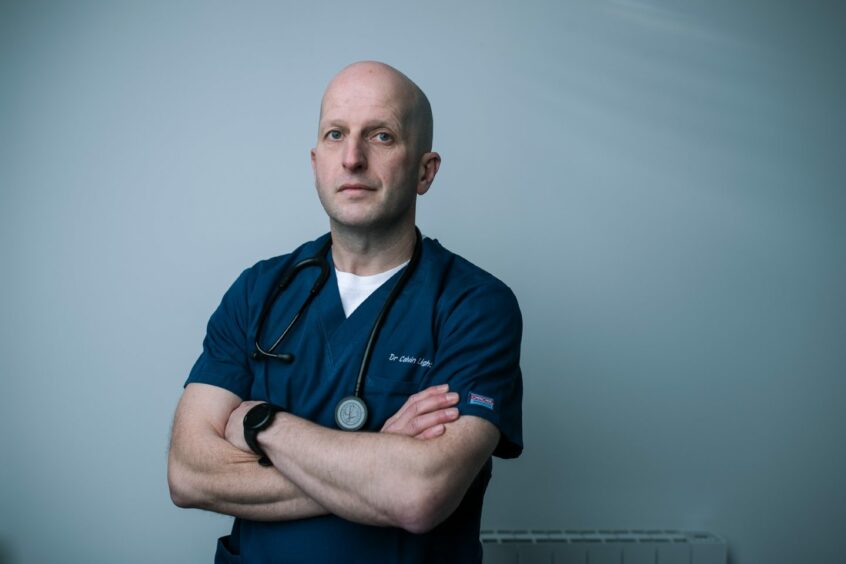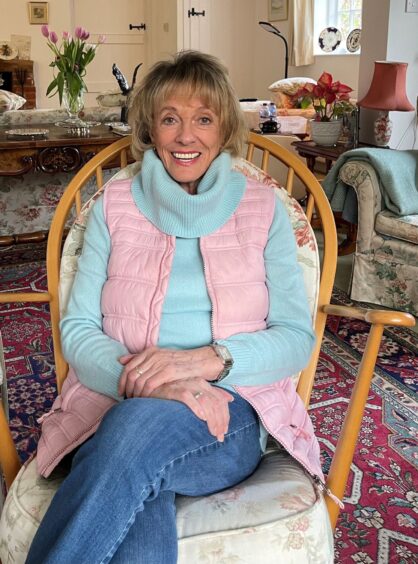
Almost 2,500 doctors are backing a campaign to halt the Assisted Dying Bill in Scotland.
Our Duty Of Care, which comprises medics from all over the UK including 389 from Scotland, point to Canada’s euthanasia laws which have allowed mentally ill people including a teenager with anorexia and others with disabilities to die.
They include GPs and hospital doctors from juniors to senior consultants across all specialities, from psychiatrists and ICU specialists to obstetricians.
The medics are speaking out against the Bill launched by Lib Dem MSP Liam McArthur.
Their call for caution and better palliative care for patients follows campaigner Esther Rantzen’s plea to the UK Parliament to speed up discussion.
Dame Esther spoke out last week after Westminster’s Health and Social Care Committee found evidence that it has led to better end-of-life care in countries where it is allowed.
The Our Duty Of Care campaign
Our Duty Of Care said: “We represent thousands of doctors and medics.
“They all oppose legalising assisted suicide or euthanasia.
“It is also clear that the more the public hears about what is happening in the handful of places that have changed the law, the more they turn against it too,” it adds.
It added that some methods of doctor assisted suicides abroad involved drugs which gave patients blood clots and serious complications before dying.
“Vulnerable people must be protected from pressure to take their own lives and trust in doctor/patient relationships be preserved.”
They have been joined in the campaign by Humanists Against Assisted Suicide and Euthanasia (HAASE) and faiths including the Church of Scotland, the Catholic Church, Judaism and Islam.
Scottish A&E consultant Dr Calvin Lightbody and respiratory physician Dr Robin Taylor have also expressed fears over the Bill.
They advocate improving end of life care in acute hospitals and not only in “leafy suburb” hospices.
“I think we have to spell out the truth that not everyone opting for assisted dying slips away quietly,” said Dr Lightbody.
“Around 10% will suffer seizures, vomiting, prolonged dying or other complications in the process.
“There is no provision in the Scottish Bill for doctors who want to opt out and patients will be offered an option of assisted dying along with treatment and palliative care on the diagnosis of serious illness. This is in law enshrined in the Montgomery judgement where the patient must be offered all choices regarding care, including the offer of death as a treatment.
“There may have been an increase in referrals for palliative care where assisted dying is legal, but this is not the same as an increase in provision of that service.”
He adds that the Journal of Palliative Medicine reports that in Canada, palliative care resources were disproportionately consumed by MAID (euthanasia) patients while non-MAID patients had reduced access.
“My fear that legalising assisted suicide will also destroy trust patients have in their doctors.”
‘There are good reasons for boundaries’
Dr Taylor, a respiratory consultant in the west of Scotland, said: “I have been asked eight to 10 times by patients to end their lives after diagnosing a terminal illness.
“But the Hippocratic oath of more than 2,400 years old still stands. It obliges me neither to kill my patients nor even discuss killing them. There are good reasons for boundaries.
“If we open the door to assisted suicide, it will profoundly affect the NHS and the challenges of medical practice will increase hugely if assisted dying is considered a treatment option.
“We are already struggling with staff retention because of the current pressures.
“After initial laws designed to allow assisted dying in mentally ill patients were passed in Canada, legislators are now being asked to reconsider. That’s an example of how ‘slippery slope’ legislation has huge consequences.
“This included a teenager aged 19, who was granted it because of anorexia nervosa.
“We need to devote ourselves to better palliative care. It is still patchy and depends on charitable funding. Medical care rightly prioritises saving lives. But when someone is nearing the end of their natural lives, priorities need to change.
“Research among junior doctors showed that in over 50% of end-of-life cases, they wanted to offer palliative treatments but felt obliged to treat in a cure not care way.
“Some experienced moral distress. The answer is to make palliative care a mainstream option in the NHS not mainly funded by charities currently.”
Dame Esther Rantzen: People cannot claim assisted dying harms palliative care
HAASE point to assisted dying as being far from a kind exit in The Netherlands.
The campaign group’s CEO, Kevin Yuill, emeritus professor of history at Sunderland University said: “The Netherlands, with 20 years of legal euthanasia, still has problems.
“Up to 43% of all deaths suffer pain and or restlessness and euthanasia has not solved that. Good palliative care will.
“This method of ending life is far from ideal. It takes on average twice as long to die as do capital punishments.
“One woman whose chemical insensitivity made life in her current flat miserable. She tried to be rehoused but couldn’t and opted for euthanasia.”
He also cites an autistic man who had been bullied since childhood and longed for friendship but finally chose assisted dying.
Only 10% of palliative care doctors would agree to prescribe drugs to assist suicide and 76% would not, the BMA reports.
I want family to remember me in the happier times
Dame Esther Rantzen, TV celebrity and campaigner, is calling for the UK Government to legalise assisted dying as she fights to survive lung cancer.
The founder of Childline and Silver Line said she has the backing of her family.
“My family have always been quite frank about each other’s choices in life and my family support my choice. All of my children approve of my view,” she says.
She points to Jersey in the Channel Islands and the Isle of Man, which are also considering legalising physician assisted suicide.
Her son, Josh, is a consultant who works in a London hospital.
When I ask her if he supports her wish to go to Switzerland for assisted dying, she replies: “All of my children support my wish for assisted dying.
“I don’t want them to remember me in my last days of lung cancer. I want them to think of the happier times.”
She rebuffs any claims that assisted suicide has resulted in poorer palliative care.
“It is helpful to see that the evidence in other countries which introduced legalised dying, that there is more palliative care.
“There have been complaints that palliative care deteriorates but this is clearly not true.
“In Canada, where mental health was included, this became too much for the public and it was rested.
“Personally, I think it is too complicated to include mental health and I would counsel against mental suffering. We are also not in a state where we can include mental decline.”
She added that she wanted to see a time frame of six months on terminal illness life expectancy.

Enjoy the convenience of having The Sunday Post delivered as a digital ePaper straight to your smartphone, tablet or computer.
Subscribe for only £5.49 a month and enjoy all the benefits of the printed paper as a digital replica.
Subscribe © Andrew Cawley
© Andrew Cawley © PA
© PA